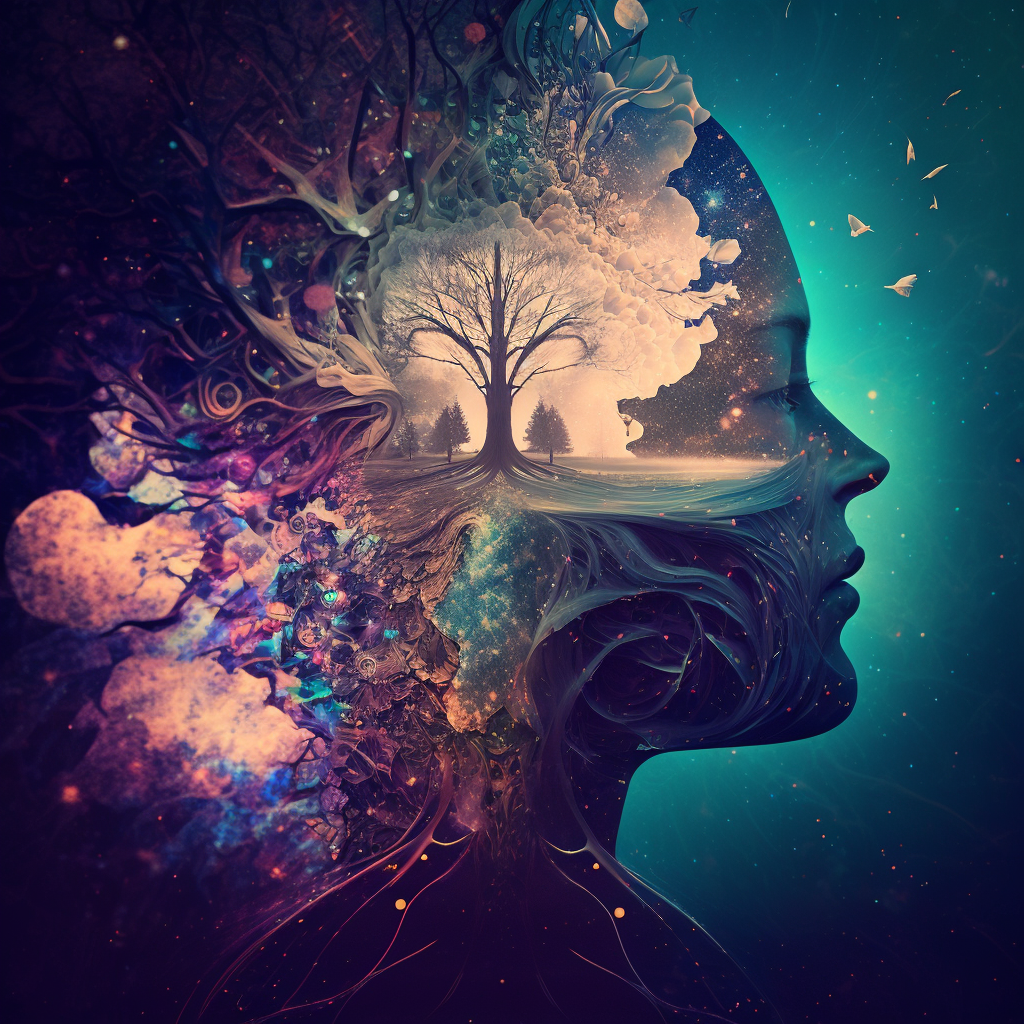I used to think consciousness was all about the brain

After all, it's where we do our thinking, our remembering, and our feeling. It's where all the magic happens– our thoughts, memories, and emotions are all processed in the complex network inside our skulls. But have you ever stopped to think about the crazy interconnectedness between your mind, body, and the world around you?
I've gone down the rabbit hole of consciousness and discovered that it's not just what's happening in our heads that matters; it's how we interact with the world around us, and how that interaction shapes our entire experience. Our perceptions, emotions, and thoughts are all influenced by the world we live in, and we shape that world with every interaction in turn. It's a two-way street, with the world and our minds constantly influencing and co-creating each other.
In this conversation with Tim Ferriss, John Vervaeke discusses how the 4E model challenges the traditional view of the mind as a disembodied entity that exists in isolation from the world. John makes a strong argument that the mind is deeply interconnected with the body and the environment, and that cognition and consciousness emerge from this complex interaction. This perspective has important implications for our understanding of intelligence, rationality, creativity, and the nature of human experience.
Embodiment is the idea that our bodies and minds are inseparable and work together to create the reality that we perceive. Every physical movement, sensation, and experience is intimately linked to our cognitive processes. When we manipulate objects with our hands, our bodies and brains work together to achieve the desired outcome. Our muscles, joints, and sense of touch all play a vital role. The position of our body in spacetime, the tactile feedback we receive, and the movement of our limbs are all part of the complex dance between body and mind.
Embeddedness is the idea that our minds are not isolated from the world but are connected to it. Our cognition is intertwined with our environment, work, and play. The world provides the raw materials (context and resources) for our awareness to function. Consciousness is not just a product of the brain but a product of the entire organism and its environment. Our senses and interactions with the world profoundly contribute to our experience of consciousness.
Enactment is the idea that our cognition is not just something we have but something we do. We are active agents in the world, constantly engaged in perception, action, and cognition. We don't just have cognition - we do cognition. From seemingly simple activities like walking and talking to more complex behaviors like problem-solving and creative decision-making, every step is an active part of our cognitive process. Recognizing that our cognition is not just something we have, but something we do, we can take a more active role in enhancing our overall cognitive abilities.
Extendedness is the idea that most of our cognition is distributed across our environment. Like a painter who uses a brush to create art, we use tools to extend our ability to think and process information. We use calculators to solve complex mathematical problems, smartphones to access unbelievable amounts of information, and books to expand our knowledge and perspective and to guide us to where we want to go. Language, too, plays a vital role in extending our abilities, allowing us to communicate with others, share knowledge, and work collaboratively.
Emotional is the idea that our emotions and cognition are not separate entities, but are intricately intertwined. Contrary to the traditional view that emotions are irrational and hinder cognitive processes, they actually play an essential role in shaping our mental processes. Our emotions help us determine what information is relevant and important, providing us with a powerful tool for navigating the world around us. Let's embrace our emotional nature and use it to enhance our cognitive abilities.
Exaptation refers to the process by which the brain adapts and reuses existing neural circuits and structures to perform new and unexpected functions. This occurs as the brain responds to changing demands and challenges, finding innovative solutions by repurposing existing structures. The tongue serves as a classic example of exaptation, as the neural circuits originally evolved for chewing and swallowing have been re-purposed for speech production, enabling humans to communicate in a multitude of unique ways. This concept highlights the remarkable plasticity and adaptive capabilities of the brain and nervous system, demonstrating the potential for evolution and change within these complex systems.
Consciousness holds the keys to unlocking our true potential through the interplay of mind, body, and environment. Master these three keys to power and command your cognitive abilities:
- Leverage the interconnectedness of embodiment, embeddedness, enactment, extendedness, and emotions to surpass conventional cognitive boundaries.
- Exploit the concept of exaptation, capitalizing on the brain's adaptability to repurpose existing neural circuits for new functions, fostering growth and transformation.
- Explore consciousness to actively refine your cognitive abilities, improving your skills in navigating life and increasing your impact on the world.
Use these insights to shape your ideal life, cherishing the unique opportunity we have to experience it.

